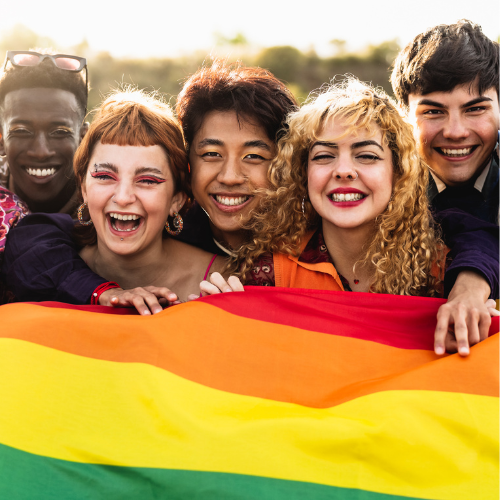June is Pride Month—a time for celebration, remembrance, and advocacy for LGBTQ+ communities around the globe. Beyond the rainbow flags and corporate sponsorships lies a deeper call: to create space for people to feel seen, heard, and respected—not just in June, but all year long. One of the simplest yet most powerful ways to achieve this is through the language we choose.
If that sounds insignificant, I invite you to pause. Consider how you feel when someone calls you by your name and how quickly you notice when someone mispronounces it, shortens it to a nickname you do not use, or forgets it entirely. Language has the power to affirm our existence or erase it, to build connection or isolate. For many in the LGBTQ+ community, especially those who are transgender, nonbinary, or gender non-conforming, language is more than preference; it's a matter of mental and emotional safety.
When Words Wound: The Reality of Misgendering
Pronouns are a vital aspect of that representation. For trans and nonbinary individuals, hearing the correct pronouns affirms their gender identity in a world that often misgenders or erases them. It's not about being "politically correct". It's about being human and acknowledging someone's reality.
For the individual, the impact runs deeper than momentary discomfort. As the mother of a transgender son, I can confirm that when someone is repeatedly misgendered, each instance chips away at their sense of self and belonging. You can see it on their face, in their demeanor, and in how they show up in the world. Studies have shown that persistent social rejection, which includes misgendering, can lead to higher rates of anxiety, depression, and suicidal ideation in trans and nonbinary individuals. These aren't abstract statistics. They represent real people experiencing genuine mental health harm caused by invalidating language. Repeatedly getting someone's pronouns wrong is not just a mistake. It’s a thoughtless and ongoing contribution to an environment where an individual’s existence feels precarious.
The reverse is equally powerful. When we use someone's correct pronouns consistently, we offer them something invaluable: the experience of being seen and accepted without having to fight for it. We create moments of affirmation that can counterbalance the daily microaggressions they face elsewhere.
Creating Spaces of Inclusion
The language we use daily at work, school, in our families, and on social media signals who is welcome, acknowledged, and safe to show up authentically. When we foster environments of respect, curiosity, and compassion, we make it easier for others to care for their mental health. We allow people to show up without fear of rejection.
This goes beyond pronouns to encompass how we talk about relationships, families, and identity. When we default to inclusive language by asking about someone's "partner" or acknowledging that families come in many forms, we create space for everyone's reality. These small shifts communicate that diversity isn't just tolerated but genuinely welcomed.
Consider the mental energy required to constantly adapt your expression into terms that others find acceptable. When someone has to decide whether it is safe to mention their same-sex partner at work, or when they face a choice between authenticity and acceptance during family conversations, this cognitive load takes a toll. Inclusive language alleviates this burden, allowing people to channel their mental energy into creativity, connection, and self-care for themselves and others. It also fosters genuine connection in relationships. When individuals feel safe to show up fully, conversations become more honest, empathy deepens, and mutual understanding grows. Rather than filtering or hiding parts of who they are, individuals can invest that energy into building trust, expressing their ideas freely, and forming more meaningful bonds.
Language as Advocacy
Words hold the power to dismantle the barriers of shame, stigma, and silence that continue to surround LGBTQ+ experiences. By speaking openly and affirmatively about diverse identities and relationships, we normalize what should already be considered normal. We create pathways for others to share their stories, seek support, and access the mental health resources they require.
This is especially important for young people who may be questioning their identity or struggling for acceptance from family and peers. When they hear inclusive language used naturally and without fanfare, it conveys a message that they are not alone, that their feelings are valid, and that there are adults in their lives who will support them.
Language can serve as a bridge to understanding. When we approach conversations about identity with genuine curiosity instead of judgment, and when we ask questions from a place of care rather than skepticism, we create opportunities for learning and connection. These conversations can transform not just individual relationships but entire communities.
Full Circle
Pride Month reminds us that celebration and advocacy go hand in hand. While we honor the progress achieved and the joy experienced in authentic living, we also acknowledge the work that lies ahead. The words we choose every day—not just in June, but in every conversation, every interaction, every moment—hold the power to contribute to that work.
Making space for people to be seen, heard, and respected doesn't require grand gestures or perfect knowledge. It starts with recognizing that our words can heal or harm. When we do, we don't just support LGBTQ+ mental health. We strengthen the fabric of our shared humanity, one conversation at a time.

